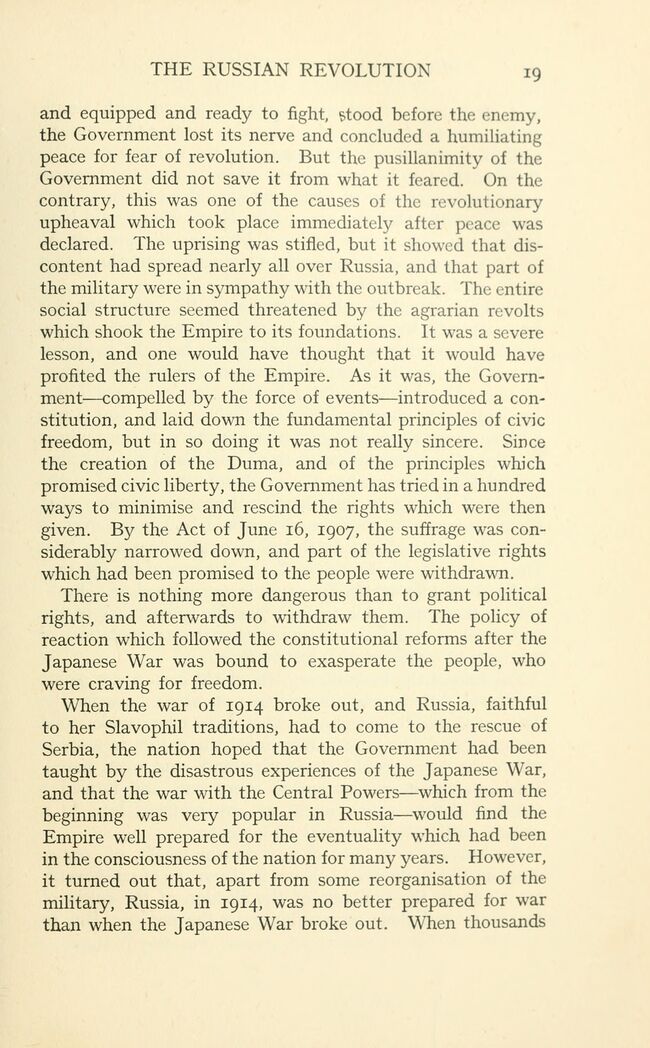
Full resolution (JPEG) - On this page / på denna sida - II. The Russian revolution: its causes and effects

<< prev. page << föreg. sida << >> nästa sida >> next page >>
Below is the raw OCR text
from the above scanned image.
Do you see an error? Proofread the page now!
Här nedan syns maskintolkade texten från faksimilbilden ovan.
Ser du något fel? Korrekturläs sidan nu!
This page has never been proofread. / Denna sida har aldrig korrekturlästs.
THE RUSSIAN REVOLUTION
19
and equipped and ready to fight, stood before the enemy,
the Government lost its nerve and concluded a humiliating
peace for fear of revolution. But the pusillanimity of the
Government did not save it from what it feared. On the
contrary, this was one of the causes of the revolutionary
upheaval which took place immediately after peace was
declared. The uprising was stifled, but it showed that
discontent had spread nearly all over Russia, and that part of
the military were in sympathy with the outbreak. The entire
social structure seemed threatened by the agrarian revolts
which shook the Empire to its foundations. It was a severe
lesson, and one would have thought that it would have
profited the rulers of the Empire. As it was, the
Government—compelled by the force of events—introduced a
constitution, and laid down the fundamental principles of civic
freedom, but in so doing it was not really sincere. Since
the creation of the Duma, and of the principles which
promised civic liberty, the Government has tried in a hundred
ways to minimise and rescind the rights which were then
given. By the Act of June 16, 1907, the suffrage was
considerably narrowed down, and part of the legislative rights
which had been promised to the people were withdrawn.
There is nothing more dangerous than to grant political
rights, and afterwards to withdraw them. The policy of
reaction which followed the constitutional reforms after the
Japanese War was bound to exasperate the people, who
were craving for freedom.
When the war of 1914 broke out, and Russia, faithful
to her Slavophil traditions, had to come to the rescue of
Serbia, the nation hoped that the Government had been
taught by the disastrous experiences of the Japanese War,
and that the war with the Central Powers—which from the
beginning was very popular in Russia—would find the
Empire well prepared for the eventuality which had been
in the consciousness of the nation for many years. However,
it turned out that, apart from some reorganisation of the
military, Russia, in 1914, was no better prepared for war
than when the Japanese War broke out. When thousands
<< prev. page << föreg. sida << >> nästa sida >> next page >>